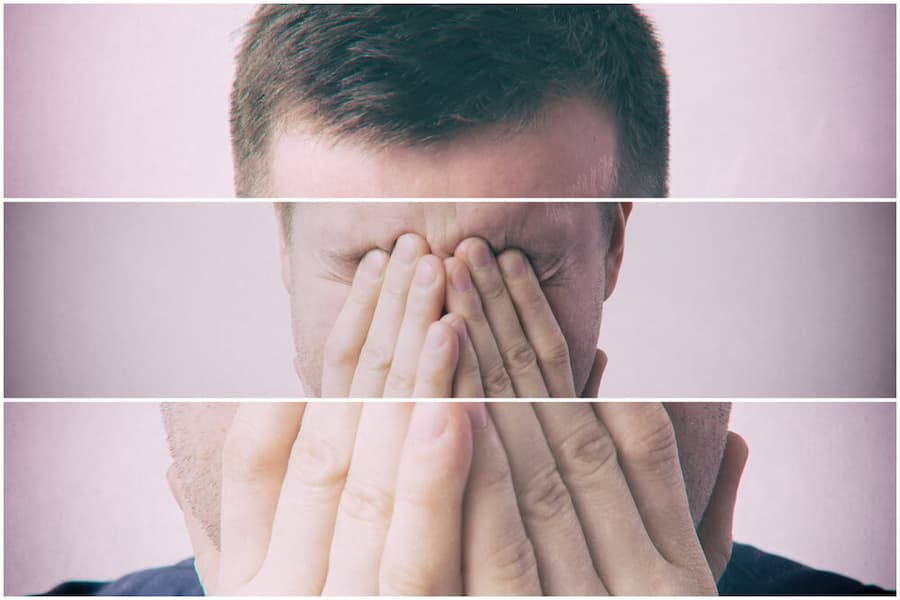Table of contents:
Failure to recover after witnessing or experiencing a terrifying event can make you sick. It is a condition of persistent emotional and mental stress, resulting in an uncomfortable life. If you have this experience, you may have post-traumatic stress disorder. You need to start treatment right away to help you regain your everyday life. Learn everything about this disorder in the review below and how to successfully overcome it.

What is PTSD (Post-Traumatic Stress Disorder)
PTSD is triggered by a horrible/terrifying event, either by witnessing or experiencing it. These events may include serious accidents, natural disasters, combat/war, rape, terrorist acts, or death threats.
These people tend to have intense, disturbing feelings, and thoughts resulting in fear, sadness, anger, and stress. Getting a professional post-traumatic stress disorder treatment is essential to beat symptoms and improve quality of life.
Types of PTSD
The type of PTSD can be used to determine the impact level. Below are the types of PTSD:
Normal Stress Response This is a normal stress response to terrifying events such as illnesses, accidents, and surgeries before PTSD starts.
Acute posttraumatic Stress Disorder This is a stress disorder that occurs in people exposed to what feels like a life-threatening event. It includes loss of loved ones, natural disaster, job loss, or risk of death.
Uncomplicated PTSD This is connected to one specific major traumatic incident. The condition leads to nightmares, trauma reminders, irritability, and mood changes.
Complex PTSD This is caused by multiple traumatic events, commonly seen in domestic, sudden loss, or abuse violence cases.
Co-Morbid PTSD This is a blanket term for co-occurring disorders. It is applied to people with several mental health concerns and substance abuse issues.
Post-Traumatic Stress Disorder Test
This test is for adults and children six years and older. The PTSD test is a significant step in a proper diagnosis. Answers should be yes/no:
1. Have you witnessed, experienced, or heard from a close friend/family about the threatening event? Examples include threatened or actual death, sexual violence, or severe injury?
2. Are you distressed by sounds, sights, feelings, or smells that remind you of a traumatic event?
3. Since this incident occurred, do you experience any recurring involuntary dreams or memories which make you suffer?
4. Do you find yourself trying to think about this traumatic event?
5. Do you have blames yourself for the happening of the event?
6. Do you feel guilt, fear, or shame about that traumatic event?
7. Do you feel disconnected from other people?
8. Are you uninterested in the activities you enjoyed right before the happening of a traumatic event?
Two or more "yes" answers mean you may have PTSD and need to seek help.
Causes of Pos-Ttraumatic Stress Disorder
This disorder is believed to be caused by any traumatic event, including:
Risk Factors
People of different ages can suffer from PTSD. Risk factors play a part in developing this disorder. They include:
How are PTSD Disorders Diagnosed
To undergo a diagnosis of this disorder, you should have been exposed to any traumatic event, as discussed above. Your therapist will perform a psychological evaluation, which includes asking about signs and symptoms and the event(s) which led to them.
The physical exam includes checking for medical issues causing symptoms, using criteria in the DSM.
Symptoms and Signs of PTSD
PTSD can start within three weeks to one month after the traumatic event. Signs and symptoms of post-traumatic stress disorder can disrupt your regular life routine. They can vary from one person to another, but knowing them helps to determine if you, your relatives, or your friends have PTSD. Symptoms include:
Physical Symptoms
Behavioral Symptoms
Psychological Symptoms
Treatment Options for PTSD
PTSD can lead to severe distress; therefore, seeking early professional treatment will help you to recover from this disorder. Below are treatments you can be enrolled in depending on your symptoms:
Medical Treatment
Prescribed medication can aid in lowering anxiety and physical agitation, thus lowering PTSD symptoms. Antidepressants such as selective serotonin reuptake inhibitors and serotonin-norepinephrine reuptake inhibitors (SSRIs and SNRs) are used to treat these disorders. They can be used alone or preferably in combination with psychotherapy.
Psychotherapy
Behavioral therapy aids the patient in confidently facing memories and situations which you find frightening. Patients should engage outside and in the weekly appointments, helping to focus, identify, understand and change behavior and thinking patterns.
Inpatient Treatment vs. Outpatient Treatment
Inpatient
Inpatient is commonly recommended for a patient with intensive PTSD suffering. Patients stay in the clinic 24-7 under highly structured and supervised care. Inpatient care involves mental and medical healthcare services, individual therapy, prescribed medications, and group counseling sessions.
Outpatient
Outpatient may be an ideal treatment for people with mild signs of post-traumatic stress disorder. Patients can continue their obligations such as family and work while receiving treatment. Outpatient treatment involves medication-assisted sections, counseling sessions, support groups, and personal therapies.
Process and Stages of PTSD Treatment in VipVorobjev Clinic
We focus on helping the patients return to their normal state before the disorder's impact. PTSD treatment starts after you share your signs and symptoms with our doctors.
Our certified therapists will take you through a personal examination of your age, life history, signs and symptoms, and where they started. We will also use the PDS (post-traumatic stress diagnostic scale) to assess PTSD levels and symptoms in a patient. This information will help us to develop a personalized treatment plan for you.
Our treatment options include medical treatment involving some medical assistants. Psychotherapy involves behavioral sessions and preferred medicines. Inpatient treatment includes 24/7 medical supervision and therapy sessions, while outpatient treatment involves recommended personal and group sessions therapies.
Is it Possible to Get Rid of PTSD on Your Own
Recovering from PTSD is next to impossible on your own. You need help from professional doctors to offer you preferred recovery resources to safely conquer PTSD for good.
The Average Duration of Treatment for PTSD
Duration tends to vary individually based on the treatment you will be enrolled in. Generally, it takes between 4 weeks to 12 months.
Effectiveness of PTSD Treatment
All treatments provided to the patient are effective. There are various treatments based on how much you are affected by the disorder. Less- affected people can go for outpatient treatment, while people who are more strongly affected go for inpatient treatments and psychotherapy.
Cost of PTSD Treatment
Cost will depend on your chosen treatment after visiting us. We offer various treatments to all patients.
Doctors
Meet our best team to cure PTSD:
Patents and Certificates
We are DAACC (Drug, Alcohol, and Addiction Counselor Certification). Certified and registered addiction specialists are available at our clinic to help you break the cycle of PTSD and begin a new life.

